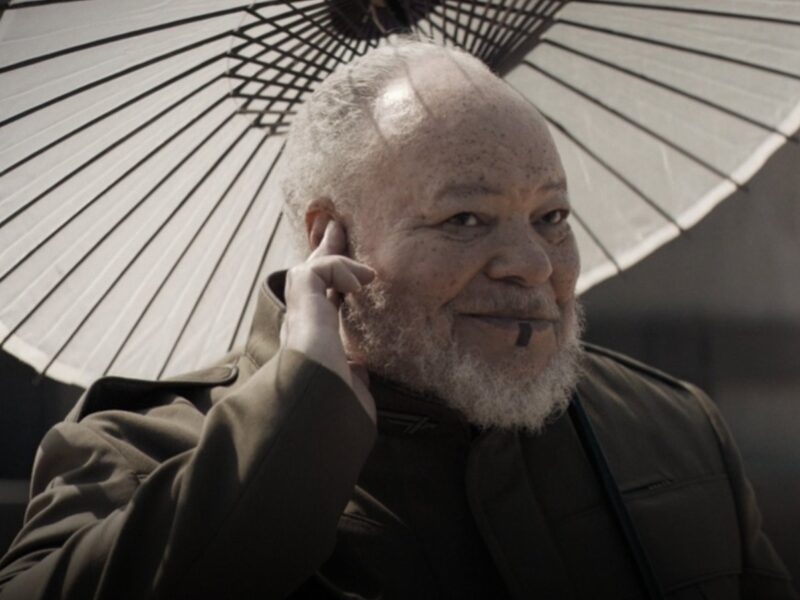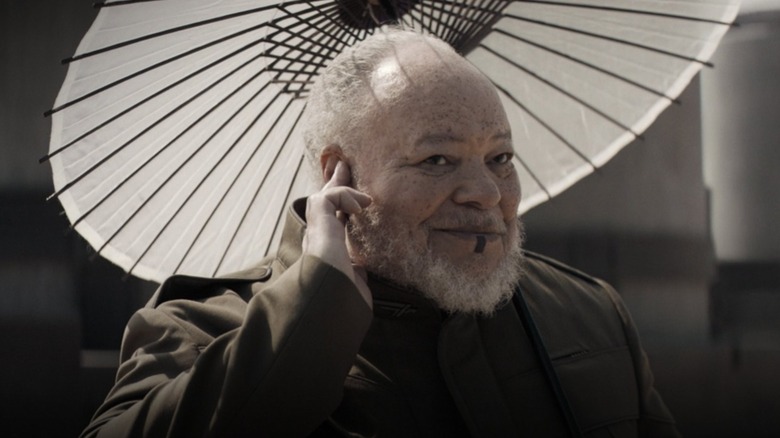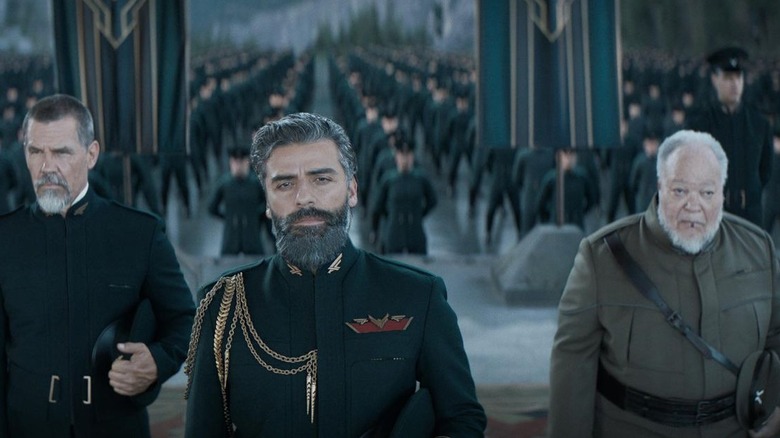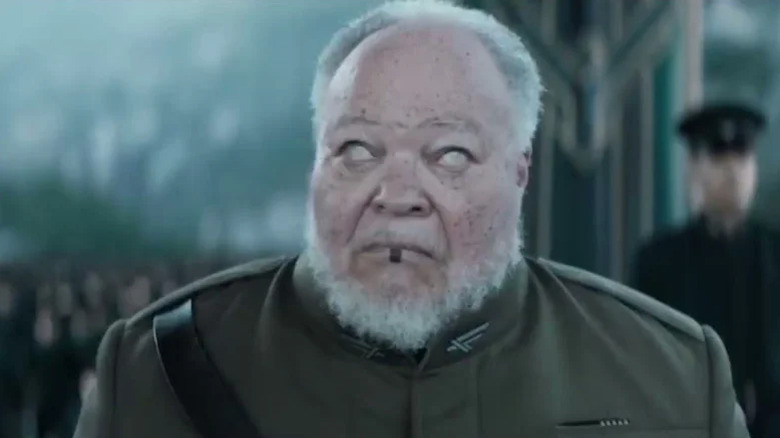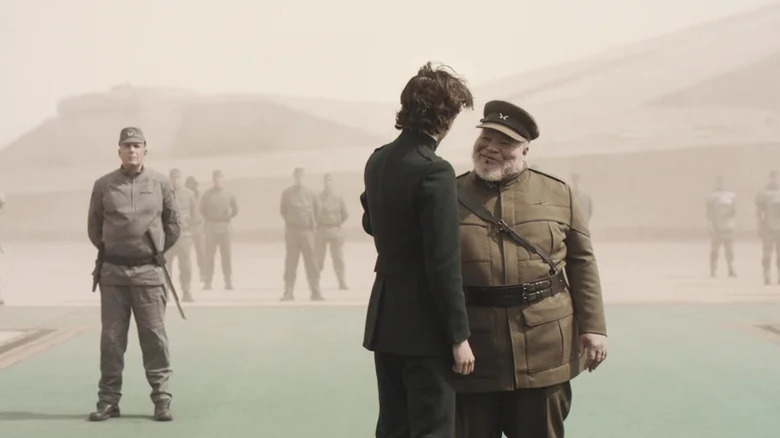The story of Frank Herbert's original “The Dune” is particularly dense. While it had a relatively simple coming-of-age and rise-to-power plot where Paul Atreides became a leader and revolutionary, the brilliance of The Tomb is in the socio-political context of the extensive world-building that surrounds the story. found.
What makes Dune's story and world special are the little details, like how the Emperor of the Known Universe has very little real power and is only in charge of his nearly invincible army (or how a simple environmentalist who slowly introduced desert animals and greenery to Arrakis became so sacred figure that he contributed to Paul's rise to Fremen leader). All of this makes Dune a truly influential and beloved science fiction classic.
That said, no book adaptation could quite cover everything Herbert covered, except perhaps the fairly reliable 2000 TV miniseries Dune. So when it came time for Denis Villeneuve to revive Dune, he made some radical changes. Some of them were fantastic (such as changing the toddler-killing Barons scene), and others were quite questionable. For example, Villeneuve cut one of the most important characters from the Dune: Part Two books after doing almost nothing in Part One. I am of course talking about Thufir Hawat.
You must remember Thufir? Stephen McKinley Henderson's character Thufir Hawat is a guy with a mark on his lower lip, eyes that roll and turn completely white, and that cute little parasol. In the first movie, he seemed like just another trusted advisor to Duke Leto Atreides and one of Paul's friends, but nothing out of the ordinary.
Except that's just part of Thufir's role in The Dune. First, you must know that Thufir is the Mentat, an order that arose after that The Butlerian Jihad that destroyed all thinking machines. The Mentats—like the Bene Gesserit—serve as assessors to the Great Houses, but instead of providing advice or sorcery, they serve as accountants, strategists, and essentially living computers.
Why is Tufir important in the Book of Dunes?
Thufir Hawat is already respected as one of the best minds in the universe; he is a Mentat, praised for his abilities as a counselor, warrior, and strategist. But his role in the story “The Dune” needs some context that is missing in the movies and is still a bit unclear in the original book.
You see, in the Dune movies, the reason the Atreides are sent to Arrakis is because Emperor Shadam Corrino IV is afraid that Duke Leto Atreides will compete with him politically. Actually, that's only part of it. Specifically, the Emperor fears that Leto's immense charisma inspires such loyalty in his already highly skilled soldiers that he is the only one who could challenge his true source of power in the “Dune” universe: Sardaukar.
Thufir's real skill is that he is the only one who understood the secret of Sardaukar. He determines that their superior fighting skills, which make the entire universe fear the Emperor, come from the extremely harsh conditions on the Emperor's prison planet Salusa Secundus. Not only that, but Thufir concluded that there was only one other world with even harsher conditions and therefore could have even more formidable warriors: Arrakis.
Knowing full well that the Emperor who sent the Atreides clan to Arrakis was a trap intended to kill them all, Tufir's plan was to use Duke Leto's charisma to make the Fremen as loyal to him as his armies. Unfortunately, they are too late, and before they can even discover who the true leader of the Fremen is, Duke Leto is assassinated.
What happens to Thufir in the dune?
After the fall of House Atreides, Thufir is captured by the Harkonnens. With a diabolical vengeance against the house that killed Leto, and knowing full well that the Emperor orchestrated it all after believing the Atreides to be a threat to the Sardaukars, Tuphir suggested his intention to Baron Harkonnen. He encouraged the Baron to turn to Arrakis and advised him to form alliances with the Fremen to challenge Sardaukar, selling it as the only way to protect the Harkonnens from a fate like the Atreides, but knowing full well that doing so would turn the Emperor against the Baron and his forces.
Along the way, he also secretly antagonizes the Baron and his nephew Feid-Rout, feeding Feid-Rout's ambition and ruthlessness to undermine his uncle. Unfortunately, after suggesting to Baron Harkonnen that they needed the Fremen, the Thufir began working against the new Fremen leader, Muad'Dib. By the time he realized he was acting against the son of his beloved duke, Hawat killed himself with a poisoned needle meant for Paul.
Why does the Villeneuve Dunes universe hate the Mentat so much?
According to Villeneuve, cutting Thufir from “Dune: Part Two” was one of the most painful choices he had to makebut he decided to do it because he had a special feeling for “Dune”. Villeneuve, you see, wanted to focus his adaptation on the Bene Gesserit, which meant (in his own words) “that the Mentat aren't as present as they should be, but that's the point of the adaptation.”
By cutting to Thufir, Villeneuve's Dune effectively erases the Mentatus from their perception of Herbert's world. Dropping or changing certain characters is understandable, but to remove the Mentat entirely in favor of the Bene Gesserit story is to erase much of what makes the fall of House Atraides such a tragedy. Thufir's plan had succeeded. Leto was already on his way to secure alliances with the Fremen, and he could have challenged the Emperor. They could have lived if only they had had more time.
Not only that, but by erasing the Mentats, the world of Villeneuve's “Dunes” is a little less haunted and mystical. The Mentat aren't just a rival order to the Bene Gesserit, they're also part of the brilliance of Herbert's science fiction universe, a world where “thinking machines” have been replaced by humans. Now the prequel series “Dune: Prophecy” continues to ignore the existence of Mentats as well, even in the background, which is a huge shame. However, given 10,000 years of history, we can only hope that “Prophecy” corrects its mistake in the future.
Source link

